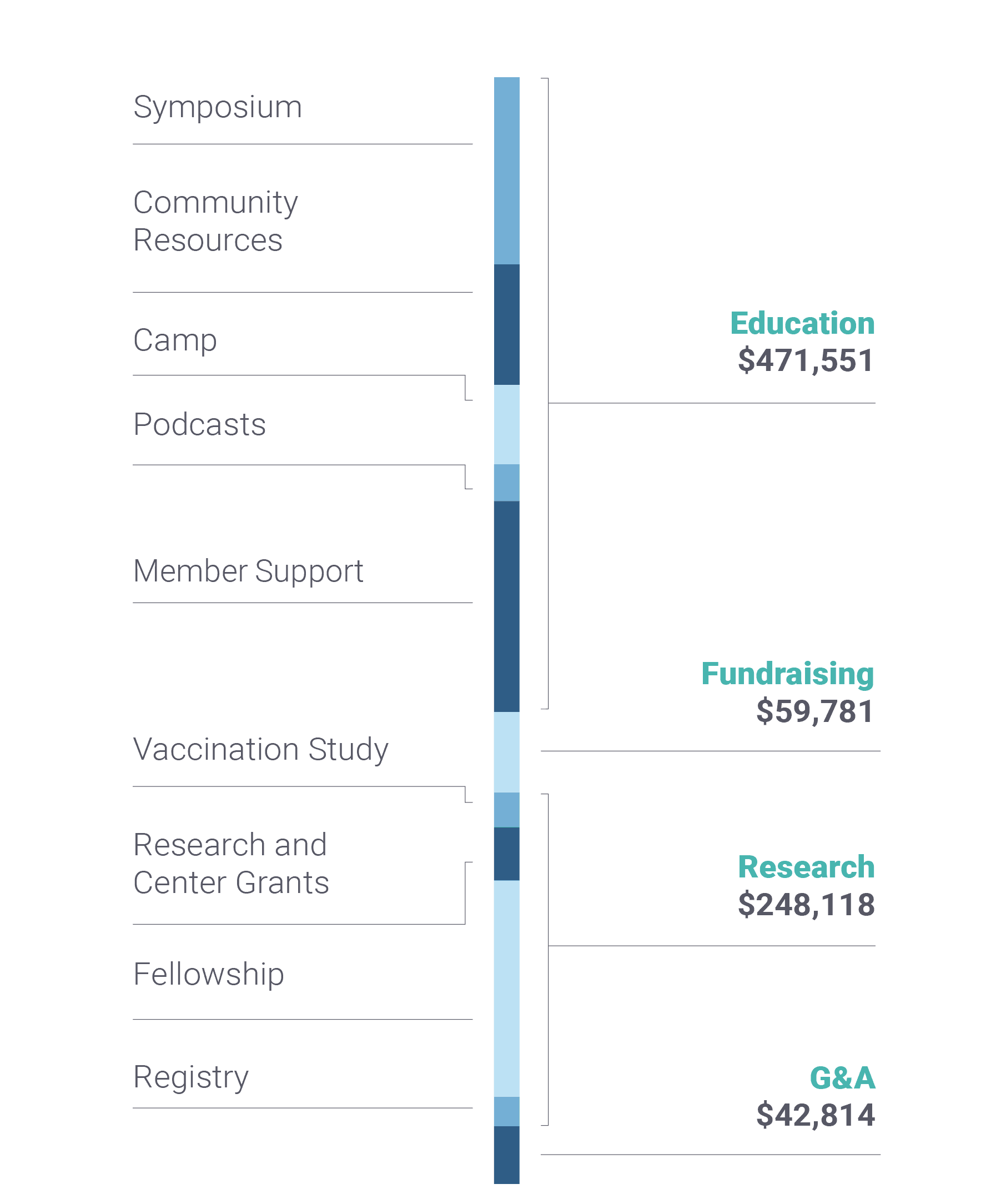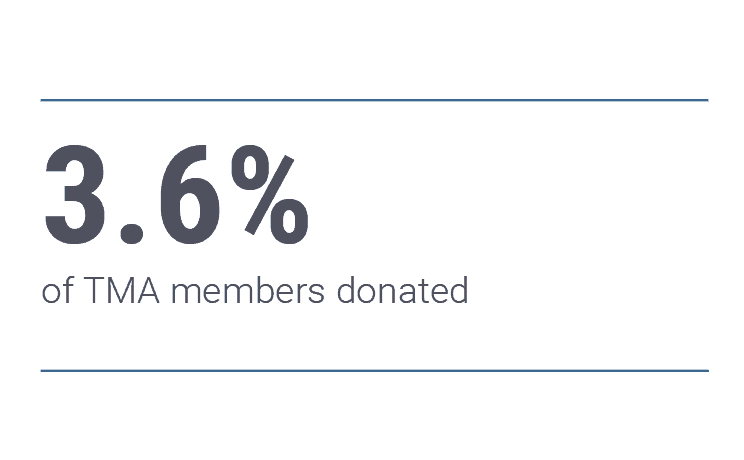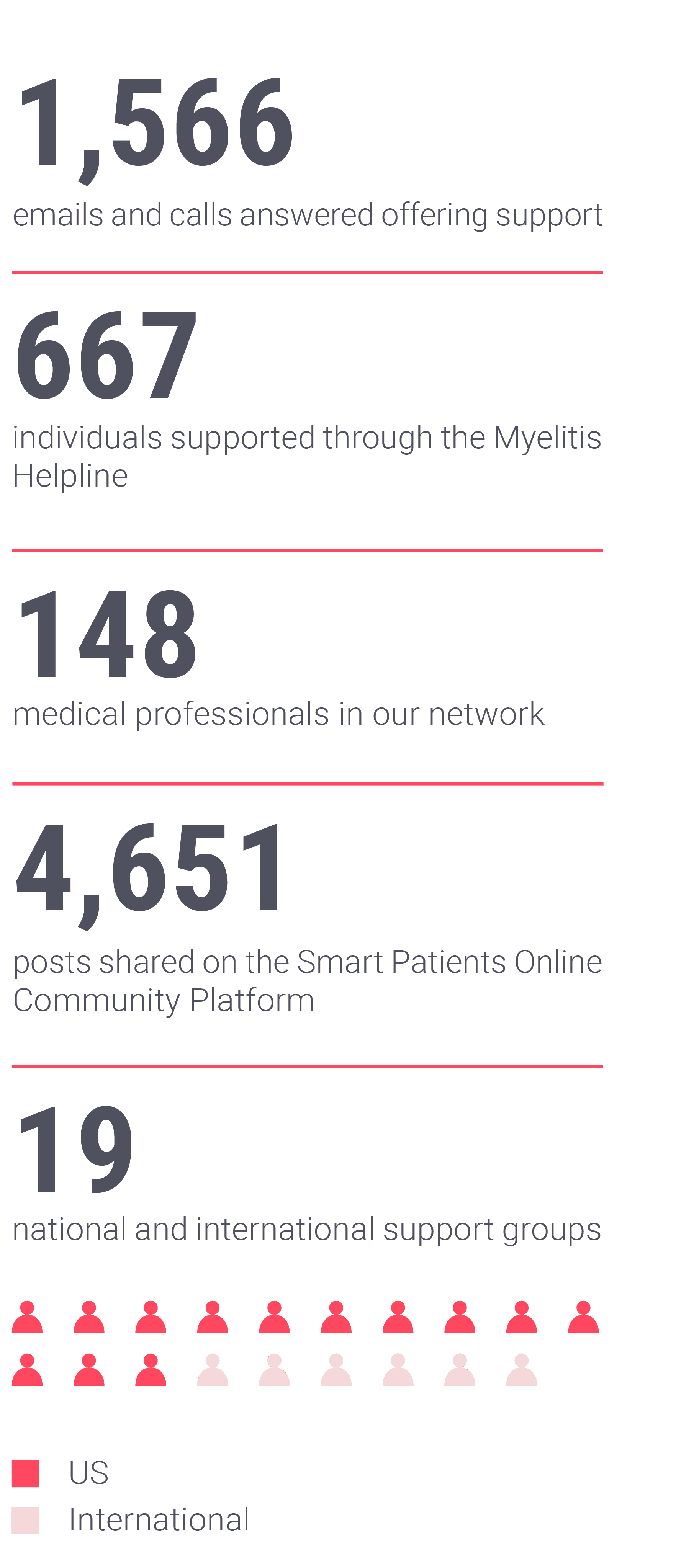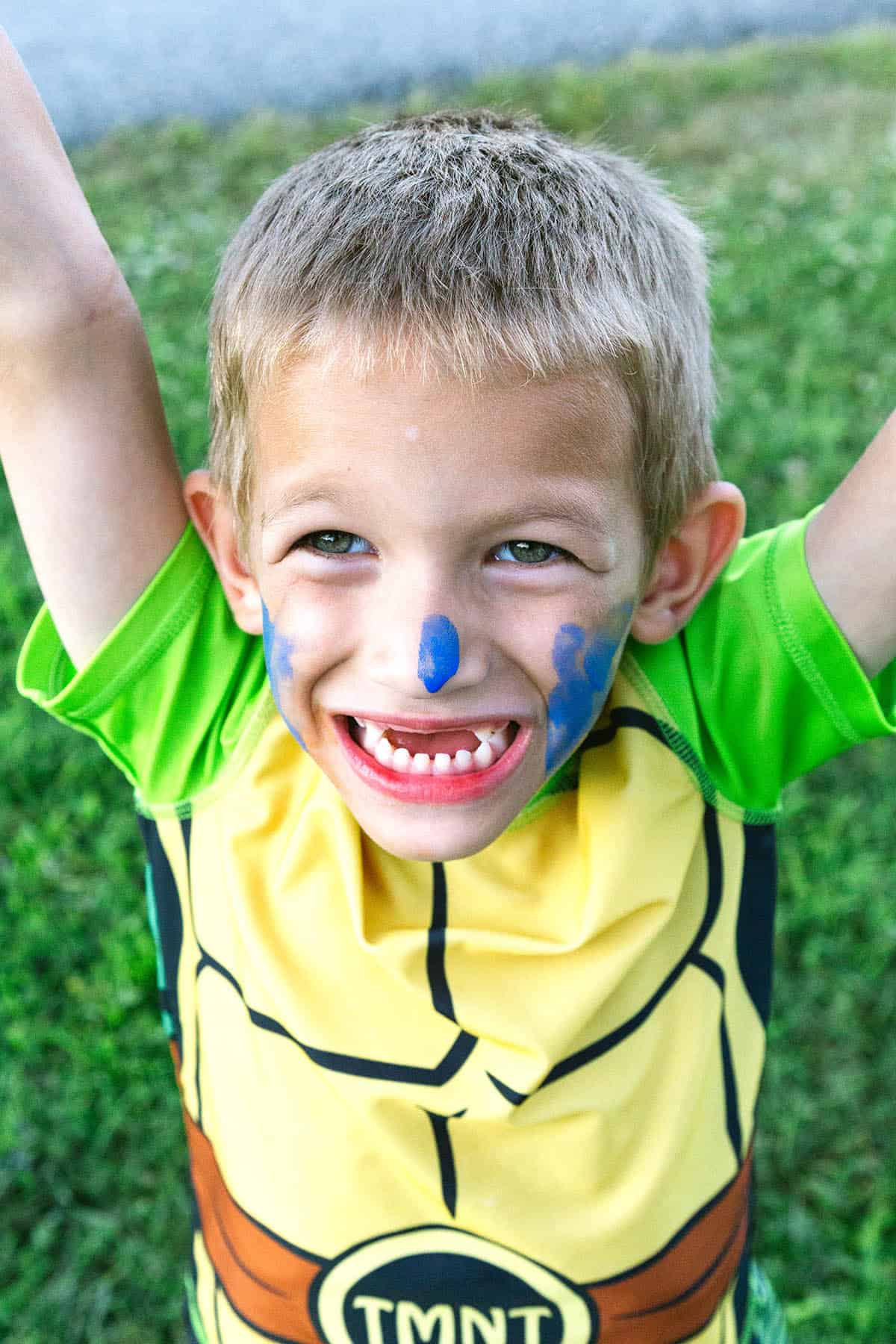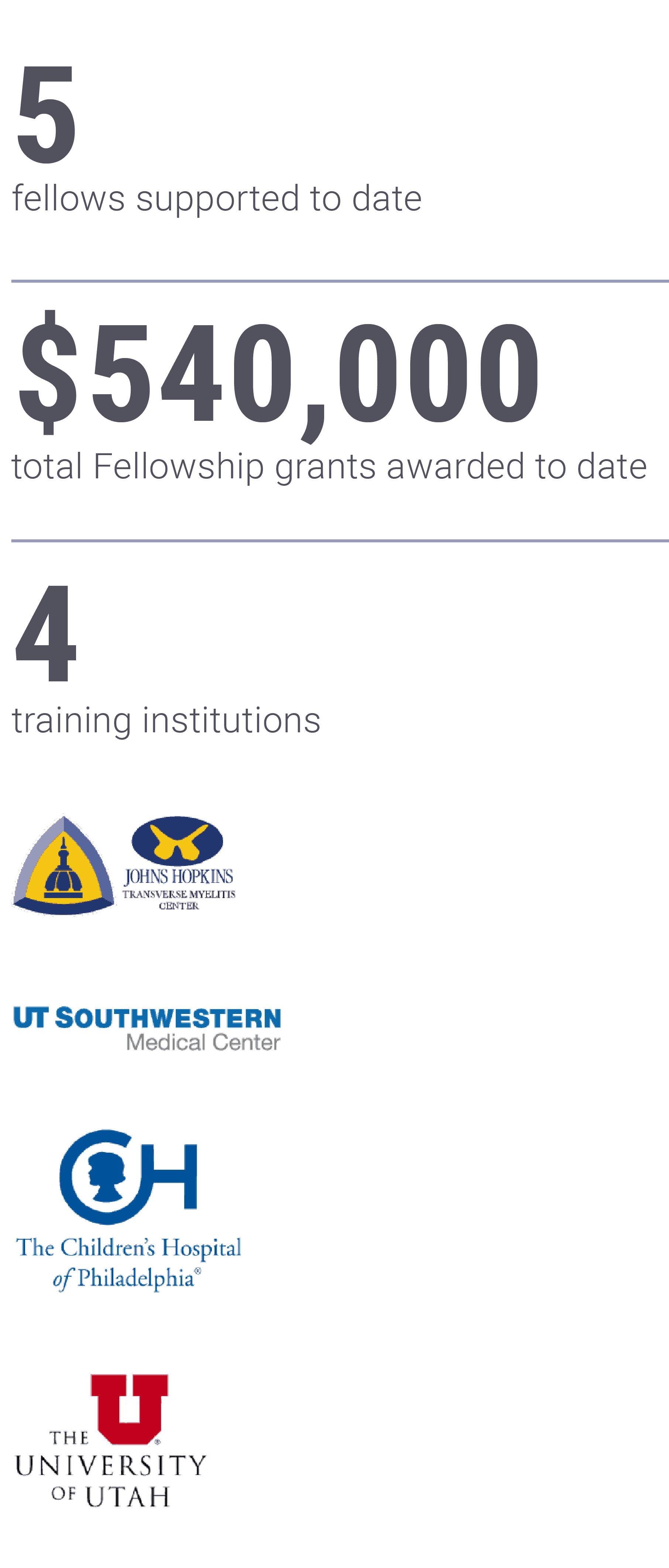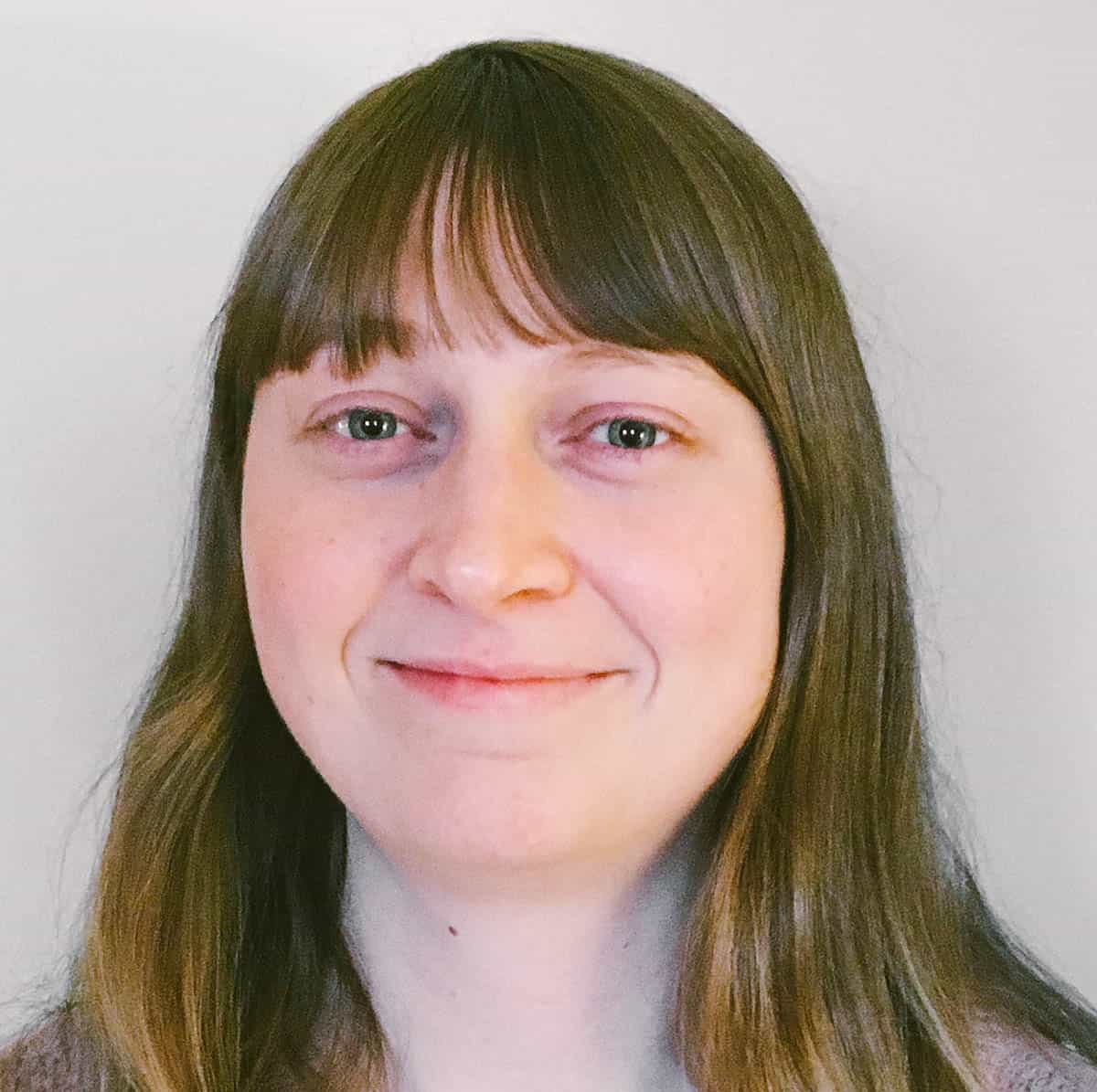In 2017, our community came together to raise over $684,000 for research, education, and operations, and helped us support more than 12,700 people around the world.
Advocacy is a powerful and important catalyst for change. The most powerful advocates are those who have first-hand experience and knowledge. This gives our members the opportunity to be some of the most persuasive and compelling messengers of our mission.
We advocate to connect our members by hosting awareness events, such as our Walk-Run-N-Rolls. We advocate to empower our volunteers by offering training and resources to promote the most accurate information at the local level. We advocate to generate a movement and end rare neuroimmune disorders.
In 2017, we held seven Walk-Run-N-Roll events that, together, raised more than $68,000 from sponsors, donations, and registrations. Not only are these events important fundraisers for us, but they are equally important in bringing our community together.
For many members, our events are the first time they have come face-to-face with another person diagnosed with a rare neuroimmune disorder. It can’t be overstated the importance this has on the emotional side of recovery.
These walks have an impact on the organizers, too. Elisa Holt, Dana Deidloff, and Kara Compton each volunteered to hold a walk because they have a child diagnosed with a rare disorder. Elisa, Dana, Kara, and their families took an active role in the care of their loved ones.
The money raised from their walks goes towards research and the programs we offer, increases awareness of these disorders, and provides invaluable community support. Tina and Jason Robbins advocated for their daughter, Sarah, by hosting the 2017 SRNA Gala Dinner & Auction. Sarah was diagnosed with transverse myelitis in 2011. The event raised more than $52,000 and brought awareness to their Florida community.
In addition to our awareness events, we advocate by collaborating with other organizations to increase the visibility of our cause. SRNA is a member of the National Organization for Rare Disorders (NORD). We participate in NORD’s annual Rare Disease Day, which takes place on the last day of February each year. The main objective of the day is “to raise awareness amongst the general public and decision-makers about rare diseases and their impact on patients’ lives.” In 2017, six of our members, along with their family and friends, went to the Georgia State Capital to educate about and advocate for individuals living with rare neuroimmune disorders.
Finally, we advocate through our ever-growing social media presence. We share articles and photos about those who inspire us with their perseverance; from teenagers like Brittani Rusnak, who was awarded a scholarship for her volunteer efforts at a local hospital, to Virginia Ventura, who is learning the viola 25 years after her diagnosis.
We hope these stories inspire and connect our community. We believe it is important for our members to see that there are others out there volunteering their time to help bring about an end to these disorders.
We can’t do this alone.
At a Glance
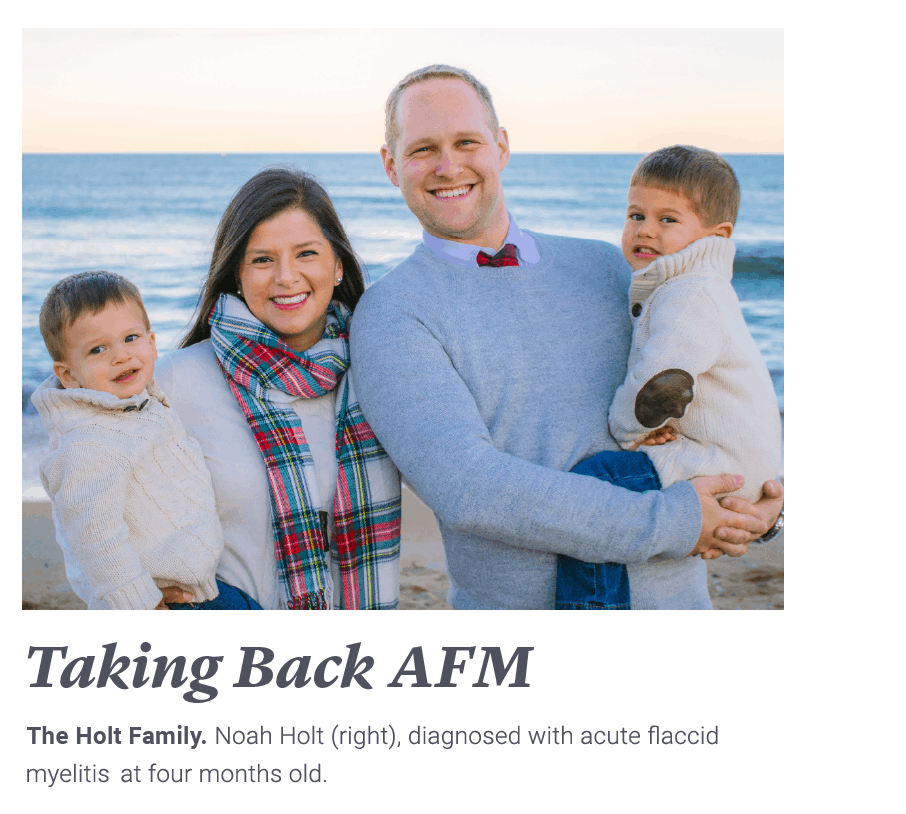
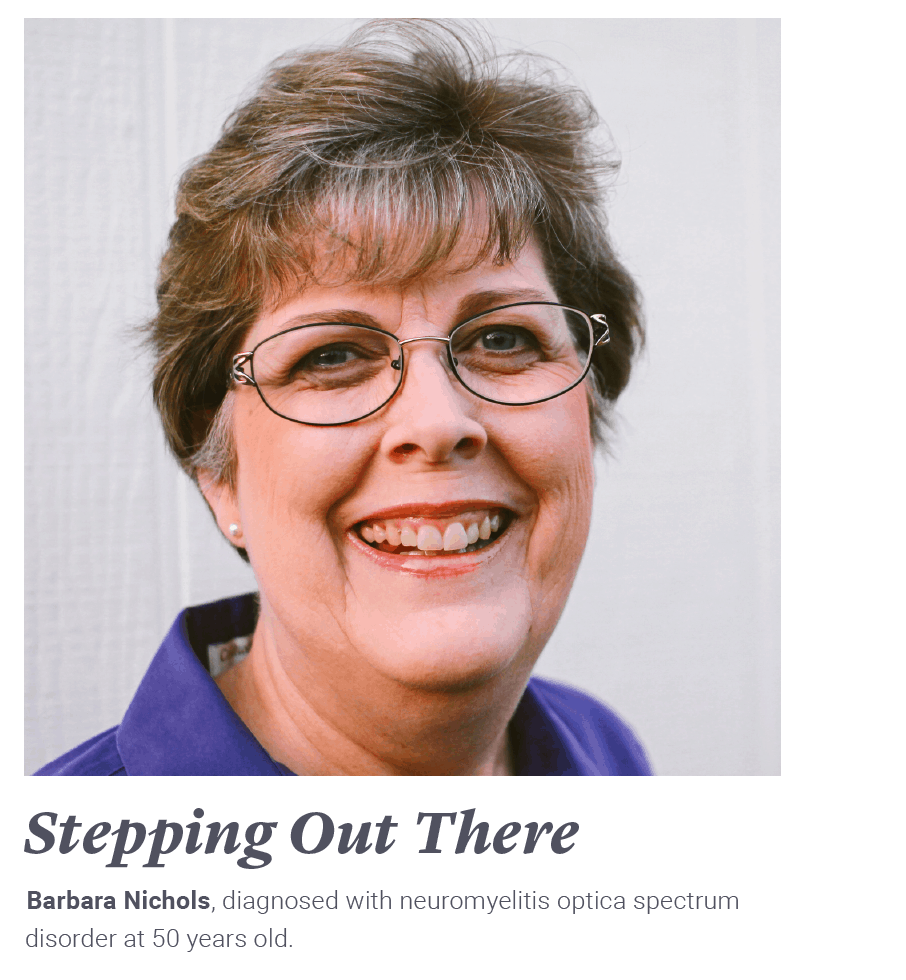
Being diagnosed with a rare neuroimmune disorder is often frightening and isolating. Many people are fine one day, and then are suddenly unable to move, see, or feel their body. Most people have never heard of these disorders before they are affected. Most are lucky enough to have support from friends and family members, but something seems to be missing; for every car ride to an appointment and thoughtful text, there is a nagging sense of still being alone. They know no one else with a rare neuroimmune disorder. No one knows the searing pain, the fatigue, the loss of self. We are here to help.
We support individuals who are newly diagnosed and those who have been dealing with the effects of these disorders for many years. We support by answering questions at critical points in their journey. We support to end the sense of fear and uncertainty, and show them that they are not alone.
We applied what we have learned over the last 24 years and created a tool, the Myelitis Helpline. This free online resource allows those who have recently been diagnosed, or anyone at any point after the onset of a rare neuroimmune disorder, to get answers and support about living with their disorder and also ask detailed questions. We also provide personalized support by answering phone calls and emails from our community.
We know how important it is to find a health care provider with experience in these disorders. To help those diagnosed find a clinical specialist, we created the Medical Professional Network. Individuals can search by name, country, state, and specialization to find the institutions and experts in rare neuroimmune disorders near them and connect their health care team to our medical experts to ensure they are getting the best care possible. We have 148 medical professionals in our network, and the list is growing!
We partnered with Smart Patients to offer a moderated Online Community Platform to provide continued support for patients and caregivers diagnosed with rare neuroimmune disorders. 2017 welcomed 322 new members to the Smart Patients SRNA’s community for a total 1,126 members. As of today, members from all around the world continue to share their stories, ask difficult questions, provide honest answers, and support one another with words of advice and encouragement for the good and the bad days.
In 2017, we launched an entirely new Support Group Leader process, which includes a virtual training course designed to give all our Support Group Leaders the tools and knowledge necessary to lead an effective and engaged group. We currently have 19 Support Group Leaders that function like nodes in a network, providing connection and continuity of care and support.
We are here to help. We are here to make a difference. You are not alone.
At a Glance

“Our lives were forever changed on April 1, 2013. I dropped my perfectly healthy, nine-month-old daughter, Rilynn, off at daycare that morning before heading to work. At 4:45 pm, I received a phone call from our daycare provider telling me that something was wrong. Rilynn had woken from her nap around 4:00, she drank a bottle and had a snack. And then something changed. Her eyes were glassy, and she couldn’t put any weight on her legs. I left work, not worried or panicked, and told my boss that I would see her in the morning. I had no idea as I walked out the door that I wouldn’t set foot in the building for another 56 days.
When I picked Rilynn up, I immediately knew something was wrong. She screamed in pain as I buckled her into her car seat. I called my husband, Danny, from the car in tears, telling him we needed to get Rilynn to the hospital. We took her to our local hospital in rural Salida, Colorado, where blood tests, CAT scans, X-rays and urinalysis were performed before they sent us home, telling us that she was just lethargic from not feeling well. In reality, we were walking out the door with a daughter who was paralyzed from the neck down. When she could no longer lift her head to nurse, we loaded her up in the car and drove her to Children’s Hospital in Colorado Springs. It was there that we first heard the words, Transverse Myelitis.”
Rilynn was given high-dose steroids, and her doctors told her parents that they would send her home and would send a therapist to see Rilynn. They were told by their neurologist “Good luck. Babies don’t usually recover very well from transverse myelitis.” In desperation, her parents found SRNA’s website, they joined SRNA, and within 30 minutes, they received an email from Sandy Siegel, the President of SRNA. They were then connected to Dr. Teri Schreiner in Denver, Colorado. Rilynn was then transferred to Children’s Hospital in Denver and began five plasmapheresis treatments and entered their inpatient rehabilitation program. Rilynn slowly began to regain movement, first in her arms and hands and then very slowly in her legs. They left the hospital on May 17, 2013 with an 11-month-old daughter who was just relearning how to sit up and roll from her back to her stomach. Today, Rilynn can walk with the help of a reverse walker or forearm crutches. She has regained motion in all parts of her body.
“Both Danny and I would do anything to change this for Rilynn – let one of us deal with TM, not her. But Rilynn doesn’t let it stop her. There’s nothing she can’t or won’t do. Our family is closer because we know how quickly life can change. We appreciate the little things. We have met some amazing people and experienced some incredible generosity throughout this journey. And while we would do anything to change this for Rilynn, this is our life, this is our hope. And we embrace it.”
Niki Stotler, mother of Rilynn
The founders of SRNA realized in 1994 that information resources for those diagnosed with a rare neuroimmune disorder were largely nonexistent. We believe that education is critical to our community’s ability to advocate for themselves, and we have since dedicated ourselves to be the leading source of information and education in rare neuroimmune disorders.
We educate our community members, their families, and medical professionals through a variety of resources and education programs. We educate so that we may empower those diagnosed with a rare neuroimmune disorder to understand their diagnosis and to advocate for their best treatment. We educate so that rare neuroimmune disorders will be better understood in the medical community and treated with the best care and resources available.
The SRNA website was established in 1997 and has since become one of the most extensive resources of information on rare neuroimmune disorders, from diagnosis to treatment to ongoing care. Twenty years later, our Resource Library contains over 300 research publications, podcasts, videos, newsletter articles, and additional resources, which are all publicly available for viewing and dissemination.
In 2017, we hosted our biennial Rare Neuroimmune Disorders Symposium (RNDS), which offered our community the chance to attend lectures from experts in the field of neuro-immunology, participate in workshops, and get to know people from around the world who have these disorders. Another way our community connects with medical professionals in the neuro-immunology field is through our monthly ‘Ask the Expert’ Podcast Series. Each podcast focuses on a topic relevant to our community and allows members to submit questions to our medical experts.
Our Resource Library also contains articles from our quarterly Newsletter, which we send to all members through email, or if requested, through postal mail to U.S. residents. Newsletters feature the latest information and inspiration about SRNA and our community, and highlight events, community news, clinical trials, and research updates. Additionally, our Blog features weekly posts containing stories from community members in their own words, research summaries, announcements, and event recaps. These posts are helpful for our community to connect with others diagnosed with these disorders through stories of personal experiences, and to receive updates on what is happening in the medical community.
Finally, we recognize that the issues facing children with a rare neuroimmune disorder are unique, and we aim to educate the parents of these children through our annual SRNA Quality of Life Family Camp. The camp helps children with these disorders and their family members experience the joys of summer camp and connect with others who experience the same symptoms and conditions. Medical professionals from our community attend camp and give a three-day education program to parents and older children, which empowers parents to advocate for their child’s best care with the most up-to-date information.
At a Glance

The annual SRNA Quality of Life Family Camp is a special experience that allows children with rare neuroimmune disorders and their families to enjoy the activities of a typical summer camp without limitation. Nash, who was diagnosed with ADEM at age 2, attended camp in 2017 along with his parents.
“Camp is always a special time for our family, it is a time where we get to connect with other families who are having the same struggles that we are. We are all living with rare disorders and we all get to learn from each other what works and what has not. But the most important part of camp is that our kids get to enjoy themselves in a judgement-free zone. We get to have fun as a family, SRNA family. We have so much in common and we enjoy counting down to when we can see each other again. The doctors share new research and new studies that we can participate in or bring the information home to other doctors who aren’t as aware. This camp has opened many doors for our family and we hope to continue to come to camp year after year.”
Jennifer Oberfell, mother of Nash
From the time we established SRNA, we knew that research needed to be a cornerstone of our work. We recognize that with research comes hope and we are committed more than ever to act as catalysts in the development of novel research opportunities.
We accelerate research to advance our understanding of the causes and the natural history of these disorders and to develop new acute and restorative therapies. We accelerate research to improve the quality of life of those affected by these disorders. We accelerate research to find a cure.
2017 has been a busy and exciting year on the research front. We partnered on projects to restore function and, in collaboration with Q Therapeutics and the University of Texas Southwestern, have committed to funding the first FDA sanctioned cell therapy to promote repair through myelin regeneration in transverse myelitis. We worked on identifying genes and causation by supporting a genetics study at Johns Hopkins University that has shown a gene mutation (VPS37A) currently known to be present only in individuals with transverse myelitis. We helped in the quest of improving diagnoses by funding a biomarker study conducted by the Rare Genomics Institute and The Johns Hopkins Transverse Myelitis Center to investigate markers in individuals with transverse myelitis and unveil more details about the biology of the disorder. Finding biomarkers can help clinicians accurately diagnose transverse myelitis in the acute phase and deliver the most appropriate treatments as quickly as possible.
In addition to collaborating on research initiatives at medical institutions around the country, in early 2017, after months of planning, designing, and reviewing, we launched one of our very own. SRNA Registry, a new and ongoing research study was launched to help advance research about rare neuroimmune disorders, collaborate with researchers from around the world, and identify participants for clinical trials. It has truly been one of our biggest achievements so far. The end goal of this pioneer project is to collect de-identified longitudinal data for investigators to accelerate research across rare neuroimmune disorders that eventually may lead to the development of novel diagnostics and therapeutics for the benefit of individuals with these disorders.
In order to further address the needs and concerns of our community, we established The Pauline H. Siegel Eclipse Research Fund in memory of one of our founders, Pauline H. Siegel, who lived her life trying to improve the future for other people diagnosed with rare neuroimmune disorders. Pauline’s is a legacy of hope, and in her name, the Eclipse Fund will drive critical research to repair the spinal cord, brain, and optic nerve, and restore the functions that have been compromised by damage. We continue to remain focused on finding more rapid and effective diagnostic strategies for all of these disorders, and on investigating the most effective novel therapies that allow for the best opportunities for restoration, repair, and recovery from these disorders.
At a Glance
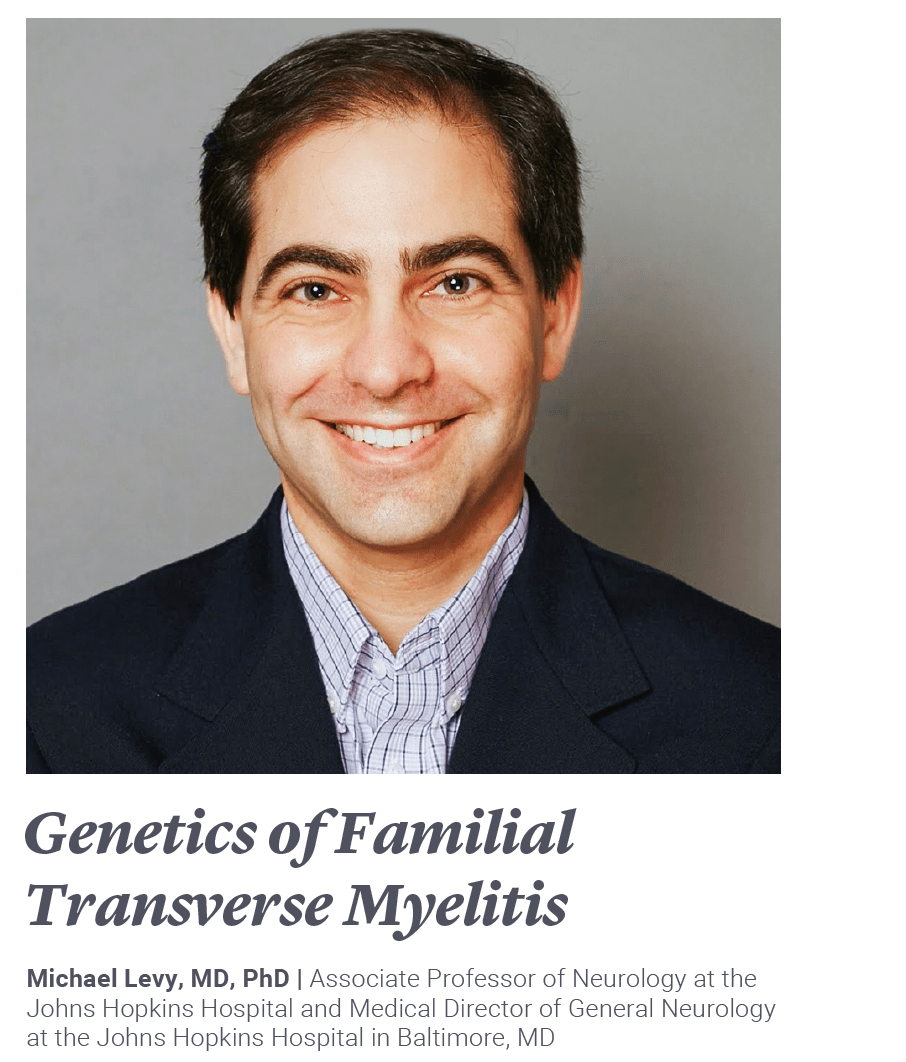
When we established the James T. Lubin Fellowship, we set out to fill a critical gap in research acceleration, and influence and grow the rare neuro-immunology discipline by significantly expanding the number of researchers and clinicians trained in rare neuroimmune disorders.
We invest in a two-year clinician-scientist training fellowship to allow our Fellows to be prepared for a combined clinical and research career in academic medicine and direct robust research programs important to rare neuroimmune disorders. We invest to train the best physicians caring for the people in our community. We invest to support existing Centers of Excellence in rare neuroimmune disorders and expand these centers so that there are more of them across the country and around the world. There is so much research that needs to be done and enabling post-residency training of researchers on these disorders is a fundamental part of driving it forward.
Since 2012, we have committed over $540,000 to the training of five researchers and clinicians dedicated to careers focused on rare neuroimmune disorders. We established partnerships with four training institutions that provide the necessary support for our Fellows to grow and become experts in the field. Through these powerful partnerships, we are contributing to a research transformation that creates opportunities for clinician-scientists with knowledge in the neuro-immunology discipline. However, the true power of our approach to investment is the ability to leverage our funding by expanding the number of institutions that provide training and empowering our Fellows to start their own centers of excellence. For example, after completing his fellowship, our first Fellow, Allen DeSena, started working at the Cincinnati Children’s Hospital Medical Center, giving access to a rare neuroimmune disorder specialist in the Midwestern United States.
We understand the great need for research acceleration, as well as the critical need for our community to be offered the best medical care possible. Our Fellowship program accomplishes both needs. For clinical care, we constantly educate other physicians and help families cope with difficult diagnoses. For research, we focus our efforts on new and novel ways to look at rare neuroimmune disorders. To us, there are few goals more important than increasing the number of medical professionals and researchers who care for people with these disorders and are interested in studying them, better understanding them, and ultimately, finding a cure.
At a Glance
Dr. Murphy received her medical degree from University College Dublin in Dublin, Ireland and completed a neurology residency at The Royal College of Physicians in Ireland. She is a James T. Lubin Fellow at The Johns Hopkins Transverse Myelitis Center (JHTMC) in Baltimore, MD, under the mentorship of Dr. Carlos Pardo-Villamizar. Dr. Murphy’s research is on predicting outcomes after a diagnosis of transverse myelitis using current imaging techniques and spinal fluid analysis. The goal of the research project is to identify patterns or biomarkers that can be used in day-to-day clinical practice to identify benefits from therapies and help make better decisions about care.

I am excited to work and train at the Johns Hopkins Transverse Myelitis Center in 2017. The James T. Lubin Fellowship grant will facilitate my clinical training in neuro-immunology. We also have an interesting research program planned, focusing on potential biomarkers in patients with transverse myelitis. I feel privileged to be able to work in a department with vast clinical expertise and academic achievements in the field of neuro-immunology. This is possible due to the support of SRNA.
Dr. Olwen Murphy, 2017 Fellowship Recipient


Our moment is now. The Pauline H. Siegel Eclipse Fund for research was established in 2017 in memory of Pauline Siegel, our inspiration.
Pauline understood the critical role of research in our community and was a strong advocate for training and funding scientists to explore new and innovative research.
SRNA is currently supporting a number of projects that have tremendous potential. Our funding goals will accelerate this work. These projects include cell-based repair and restoration of function, improving diagnosis, understanding disease genetics, and the development of scientific models for testing existing and new drugs and therapies that will directly impact the quality of life for our community.
We truly are at an exciting time for research on rare neuroimmune disorders. It is our call-to-action to aggressively pursue studies that can make a significant difference in the lives of people with rare neuroimmune disorders. Our goal is to invest $2 million over the next two years to achieve identifiable outcomes and lay the foundation for long-term research results.
We have world-class scientists and institutions dedicated to pursuing the research we fund, and we are committed to investing in their work. By reaching our fundraising goals, we will have the power to continue to attract scientists and institutions to engage in life-changing research on rare-neuro immune disorders.
We honor and remember Pauline’s life, her character and her values. For Pauline, research meant hope; hope for herself and for the people she cared about in our community. She lived her life to change the world, to heal the world, and to make the world better for all of us.
Our moment is now. Let’s make this critical research possible.


While one of the research aims at The Siegel Rare Neuroimmune Association addresses paralysis, the organization is all about motion. From awareness events such as Walk-Run-N-Rolls and golf outings to a vibrant summer family camp to the James T. Lubin Fellowship program designed to move recipients forward in their understanding of rare neuroimmune disorders, SRNA does not stand still. Through very efficient administration of donated funds, SRNA moves its research agenda forward in partnership with esteemed institutions and colleagues. Designed to provide support for those afflicted with the disorders today, SRNA through its multiple actions moves us ever closer to prevention, optimal palliation and potential cure of these difficult afflictions for the future.
Peter C. Johnson, MD, SRNA Board of Directors

We believe that everyone has a role in improving the quality of life of people with rare neuroimmune disorders. Whether you support us with your time, expertise, or funding, you will be a key player in helping us end rare neuroimmune disorders for good. Join us. We can’t do it without you.
You are your own most powerful advocate. Your own voice is the most effective in relaying your story and it must be heard! Share your story with your friends, family, and local community. Be powerful and enact change – sign on to legislation or encourage and empower others through sharing your story on our blog. Change begins when we speak up and make our voices heard!
Begin locally. Start a Walk-Run-N-Roll in your community to raise awareness of these rare disorders. Join others in your community who share your experience to petition your local and state government to recognize the lives of those living with and caring for those with a rare neuro-immune diagnosis and the importance of awareness days and events.
Sharing our experiences and learning together with others who truly understand what it is to live with or care for another with a rare neuro-immune disorder can be life-changing. Start a Support Group in your area to connect with others. Our own voices are powerful but just imagine what can be done when we come together as one!
Your fundraising fuels the programs that are improving the quality of life of individuals with rare neuroimmune disorders. From bake sales to dinner, auctions, and birthday fundraisers, they’re creative and inventive! You can collectively raise thousands of dollars and be the one responsible for the expansion of our research and education programs. Join us!
Donate
Our work is made possible through the generous support of our community. By choosing to donate to The Siegel Rare Neuroimmune Association, you are actively helping advance research, enhance clinical care, raise awareness and advocate for those with rare neuroimmune disorders.
Donate Today
Share information about your diagnosis in a new patient registry that has been designed to learn more about the natural history of rare neuroimmune disorders, treatments and outcomes using standardized tools. By sharing your information, you will help advance research about rare neuroimmune disorders.
Want Support?
We are here for you. If you have questions, need inspiration, or just want to chat about different ways to get involved, give us a call: at +1 (855) 380-3330 or send us an email at [email protected].







